|
In this Issue...
- Diverse Voices - LGBTQIA+ - Stacia I. Lewandowski
- Successes & Goals of the Ethics & Diversity Committee
- Online Poster Deadline - June 30
- Update on the IBNS Council Meeting, June 12, 2020
- Recent Trends in Behavioral Neuroscience
- The Passing of Founding IBNS President Dr. Matthew J. Wayner
- Guest Editor Profile - Stacia I. Lewandowski
Diverse Voices - LGBTQIA+ - Stacia I. Lewandowski

Happy Pride Month! Here at IBNS, we wanted to highlight IBNS members who identify within the LGBTQIA+ community. Diversity should be embraced, accepted and encouraged. We hope you enjoy these thoughtful pieces that our IBNS members wrote.
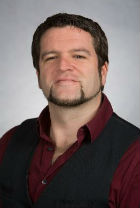 Jared W. Young, PhD Jared W. Young, PhD
Professor
Department of Psychiatry, University of California, San Diego
President; International Behavioral Neuroscience Society (IBNS)
I am so happy to be writing this for IBNS on the day that the Supreme Court of the United States recognized that LGBTQ+ rights are equal rights under law. A strange way to start this introduction to what IBNS has meant to me, yes, but it provides a nice insight into one of the reasons I have loved IBNS for as long as I have. I first attended IBNS in 2007, becoming Student Councilor in 2008 (now known as Council Representative for Trainees). I found IBNS to be very welcoming of students of all backgrounds and became even more involved, joining the Program Committee thereafter, at the invitation of President-Elect, Steve Kent! He made me Co-Chair of the committee, and by 2014 I was Program Chair! Seeing IBNS from many angles,a Travel Award winner, a student organizing workshops, being part of Program, Education & Training, and now as President involved in every committee, the supportive environment, everybody’s openness, being part of the LGBTQIA+ community was never an issue, unlike in other aspects of the wider society that are finally being addressed. I am very happy that beyond acceptance, IBNS was open to creating the Ethics and Diversity Committee, moving toward Advocacy for underrepresented groups within Science. We are a fun, welcoming, supportive group, providing excellent behavioral neuroscience and scientific support to all. More than that though, IBNS has felt like family over the years, one I am glad we aim to expand!
Back To Top
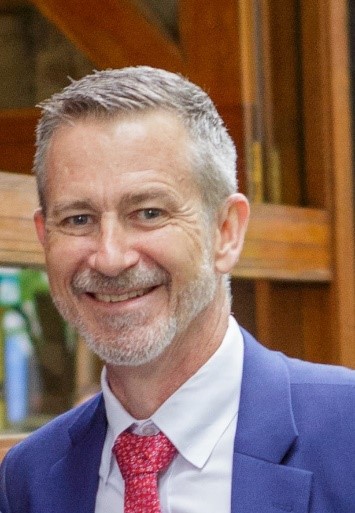 Stephen Kent, PhD Stephen Kent, PhD
Dean and Head of School
School of Psychology and Public Health
La Trobe University
Melbourne, Australia
Former President; International Behavioral Neuroscience Society (IBNS)
I’m very pleased to have been asked to describe my experiences as an LGBTQI scientist, especially during Pride Month. This is not something I would have been comfortable doing at an earlier stage in my career. My formative years were spent in a small town in Indiana that was seemingly devoid of anyone who was LGTQI. Obviously this wasn’t the case, but with the absence of local and national role models it was easy to believe. Throughout my education and training in the American Midwest and France, I “passed” as a straight man with the occasional girlfriend. It wasn’t till 1996 when I was 35 and starting my first tenure-track position in Australia that I was comfortable enough to come out. Moving to a city and continent where no one knew me or had preconceptions combined with Australia’s reasonably progressive politics provided the freedom. I’ve never looked back and to my knowledge, it’s never adversely impacted my career. I’ve progressed from Lecturer to Professor, Head of School and now Dean. My links with IBNS go back to 2002 when I was invited to be part of a symposium on psychoneuroimmunology, specifically how pro-inflammatory cytokines impact on behaviour. I loved the welcoming atmosphere that IBNS provided and the ability as a junior academic to interact with senior members in the field. Since then I’ve held numerous positions within the Society including Australian Councillor, Program Committee Chair and President. My partner, now husband, has attended many of the banquets that conclude our meetings and has always felt part of the IBNS family. I’m at that stage of career where my goals are more about others than myself. I enjoy mentoring, breaking down barriers whether they’re linked to sexuality, race, sex or anything else. It’s for this reason I was happy to be asked to be a member of the Society’s inaugural Equity & Diversity Committee. Who we are as individuals should never impact on the reception our science receives. Thankfully, society has progressed; hopefully, trainees today do not feel trepidation about being themselves. It’s important to be honest with yourself and others and to reach out when you need support.
Back To Top
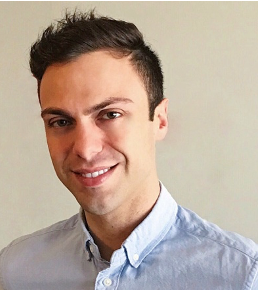 Jordan Marrocco, Ph.D. Jordan Marrocco, Ph.D.
Research Associate
The Rockefeller University
I am a research associate at The Rockefeller University and have been an IBNS member since 2018. I have known IBNS to be a supportive organization for all members, regardless of their background, and also an advocate for recognition of underrepresented minorities. Historically, there has been a considerable disparity in the representation of women, ethnic minorities, and LGBTQIA individuals within the scientific community. It is important to know that we can all address this issue by making effective changes towards the promotion of equity, diversity, and inclusion. I personally have contributed enthusiasm and energy to enact change through my involvement in organizing meetings and events to shed light on underrepresented communities. I try to apply this philosophy to my scientific interests that focus on the way biological sex has an influence on stress-related psychiatric disorders and development. It is crucial to include sex as a biological variable in neuroscience because most mental illnesses have distinct prevalence in males and females. More importantly, a large amount of studies shows that people identifying as LGBTQIA not only suffer discrimination but are at higher risk to develop more sever forms of mental illnesses likely as a result of discrimination-induced stressors. Being part of the LGBTQIA community, I am fortunate enough to have had supportive, openminded mentors and to work at The Rockefeller University, an institution that recognizes inclusion and diversity and promotes initiatives and organizations supporting their LGBTQIA members. It is high time for all underrepresented groups in academia, and especially for trainees, to find a work environment where they can feel safe and make sure to speak up when in danger. I foresee future generations of scientists eager to embrace the colors of diversity and I strongly believe we should all keep fighting against injustice and hate while cultivating our love for amazing scientific discoveries.
Back To Top
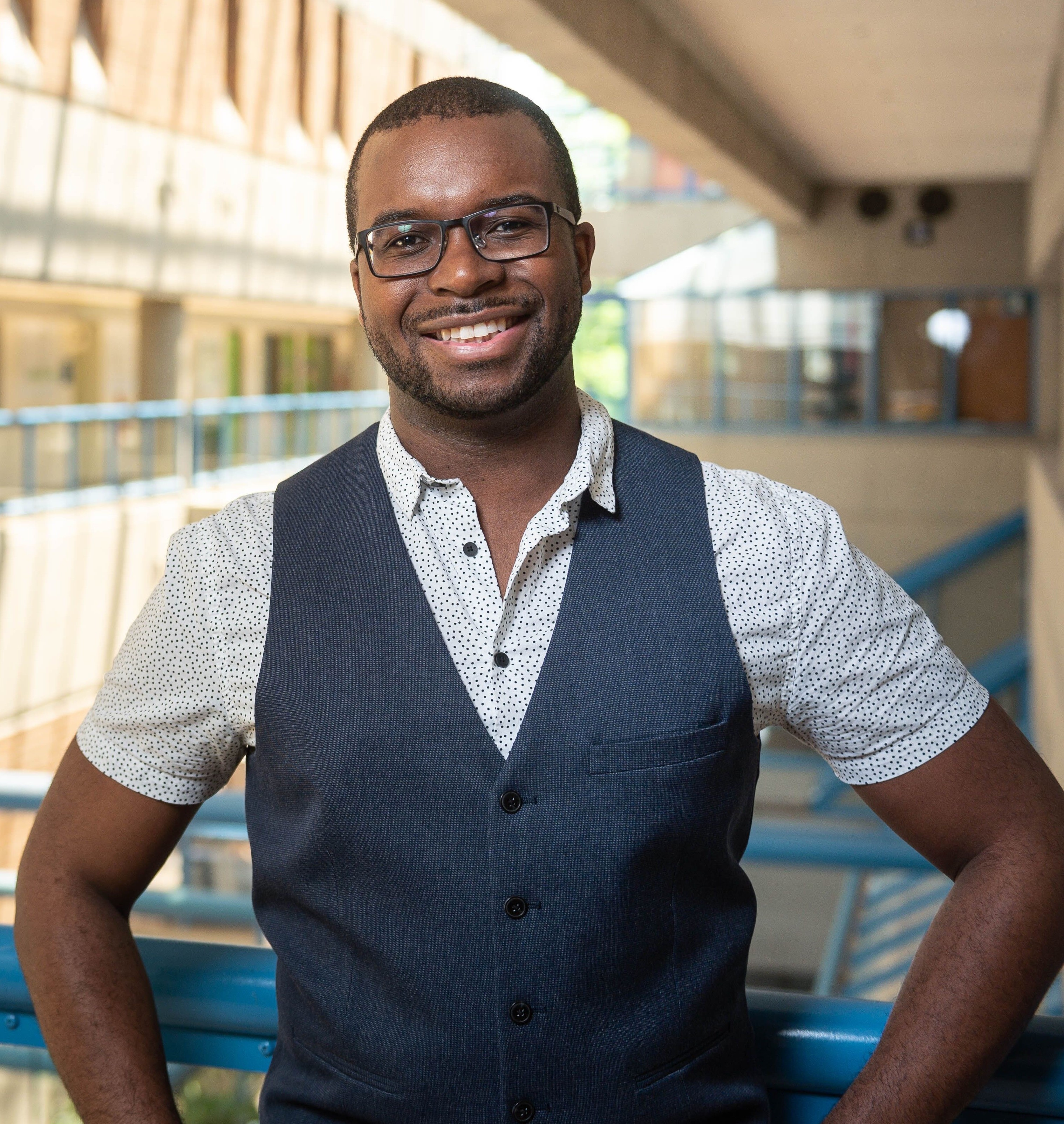 Travis Ellington Hodges, Ph.D. Travis Ellington Hodges, Ph.D.
Postdoctoral Fellow
University of British Columbia
Djavad Mowafaghian Centre for Brain Health
Department of Psychology/Psychiatry
Email: [email protected]
Hi everyone! My name is Dr. Travis E. Hodges and I wanted to take this opportunity to introduce myself to you and share a little of my personal journey in my academic career. I was born in Winnipeg, Manitoba, Canada, where I also did my undergraduate studies. I completed graduate studies at Brock University in St. Catharines, Ontario (Canada) in the laboratory of Dr. Cheryl McCormick, and I am now a postdoctoral fellow and Institute of Mental Health Marshall Fellow in the laboratory of Dr. Liisa Galea at the University of British Columbia (Vancouver, BC, Canada). My current research focus is on sex differences in neural mechanisms underlying cognitive bias across the lifespan, and how these may change under stressful conditions. My long-term goal is to become a professor/primary investigator and establish a laboratory of my own with a research focus on mechanisms underlying the transmission of behavioural and neural function from stressed parents to their offspring, and the role of age and sex in that transmission. I joined IBNS as a postdoctoral member and am proud to have received an IBNS Travel Award to attend the 2019 conference in Cairns, Australia. The 2019 meeting was my first IBNS conference and I had a wonderful time presenting my research. The conference was a great opportunity to enjoy some science along with beautiful Cairns meeting up with old friends and making new friends at IBNS. During this time of global conversations concerning the rights and academic experiences of people of colour (see #blackintheivory/#ShutDownSTEM for reference) and people of the LGBTQIA1s+ community (see #LGBTQhealth/#QueerinSTEM for reference) I am happy that I was invited to share some of my own experiences and dispense some advice that has helped me navigate through my own academic journey. The experiences that I have had as a gay and black scientist may differ from most in these communities – I feel very fortunate to have received a lot of love and support from my peers, colleagues, and supervisors. But I have also faced obstacles. Before I left Winnipeg to start my graduate studies in Ontario, I was told by family friends multiple times that it would be almost impossible for me to get a PhD because I was black; I was told by management at a store where I worked during my undergrad that pursuing a Masters or a PhD would be a waste of time because my skills were better suited for packing shelves. Thankfully, since starting my academic journey, all of my supervisors (undergraduate honours, graduate, postdoctoral) have been incredibly accepting and continue to show me nothing but support in all of my endeavors. Additionally, I have been told (and I know I am) an extreme optimist, but I wouldn’t be this positive without my treasured past and present friends and laboratory families. I still keep in touch with my graduate school cohort and watching their efforts supporting the LGBTIQA2s+ community and the Black Lives Matter movement in their respective parts of the world (Canada, US, UK, Europe) bring me to happy tears. Other trainees and past mentees of mine that have become my friends and family have been bright lights piercing through the darkness that has enveloped the current state of affairs across the world.
However, I would be remiss without disclosing that finding these accepting and loving academic work environments has been intentional on my part with a bit of luck thrown in. I have sought broad professional advice from past supervisors, and done my due diligence by meeting with potential new supervisors and laboratory mates. In contrast to my positive experiences, I have friends that have had horrible laboratory and university experiences that ruined their love for science. Based on both my positive experiences as well as what I have seen around me, I offer here some pieces of advice to trainees who may be facing adversity related to their race and/or sexual orientation either in their laboratory or even directly from their supervisor:
1. There are kind-hearted supervisors and welcoming laboratories out there! Do not be afraid to leave your current negative laboratory situation and transfer to a new one. I have close friends that transferred out of negative laboratory situations (one in their second year and one in their fourth year of graduate school) and they both found new laboratories that were a much better fit and less taxing on their mental health. Fit with a supervisor and laboratory is very hard to gauge at a glance, so one of the best things to do is speak with current or past members of a laboratory you are interested in pursuing. Take time to find a good laboratory that fits your ideals not just from a science perspective but also from a positive training environment perspective.
2. If negative experiences are progressing in your current laboratory, feel free to ask your fellow trainees about their own experiences to learn more about laboratory culture among supervisors and their labs. Use this information either to find other trainees that may be in similar situations or to determine what laboratory you might feel more comfortable in. Finding other trainees that share even just a couple of your negative experiences will hopefully help you feel less alone and hopefully you can start offering each other social support. Moreover, finding a different supervisor you are more comfortable with at the same university is also useful if you need help navigating reporting bias/discrimination and figuring out how to switch laboratories.
3. If you feel like you are unable to talk to another PI about the adversity you are facing, then search for a fellow trainee to talk to for advice – especially a trainee you respect and has shared experience working in a laboratory (e.g., a senior graduate student or postdoctoral fellow). Even though my past experiences were mostly positive, it was my graduate school cohort at Brock University that helped me keep my sanity during the most stressful and uncertain times. So I can’t stress enough how important it is to have social support. Good social networks are essential in navigating and combating feelings of despair.
To all trainees: whether or not you are currently experiencing adversity in your own laboratory do try to be a friend or a listening ear to fellow trainees that you see are having a hard time. This can make a big difference in the laboratory environment experience for everyone involved and especially for trainees that are feeling very alone in their situation.
To trainees of colour and members of the LGBTQIA2s+ community: all of our training experiences are unique, but I really hope that you can find a positive and nurturing laboratory environment (they are out there!). I also hope that you find a cohort of trainees and supervisors that support all that you do. Take care of yourselves, stay strong, and trust in your feelings concerning any situation that you are in.
Back To Top
Hayley Fisher
PhD Candidate
Kansas State University
I’m a graduate student at Kansas State University working on a PhD in behavioral neuroscience with Chip Pickens. I plan to graduate this fall and to start a postdoctoral fellowship with Susanne Ahmari at the University of Pittsburgh studying thalamocortical circuitry within the context of obsessive-compulsive disorder. I’m new to IBNS but I’m very excited to get to know a new group of people that’s excited about behavioral neuroscience! In addition to science, I love photography, baking elaborate treats, science art, and traveling!
I’m a proud cisgender bisexual woman. LGBTQ+ people are underrepresented in neuroscience and STEM fields. One of the difficult parts about being part of this community is that it can be hard to see others like you represented in academia especially because visible can result in negative experiences. I’m incredibly thankful for Twitter, as it has allowed me to connect with and see so many excellent queer scientists doing outstanding research. I’m glad to be part of an amazing group that allows me to be fully myself and promote that part of myself in order to be visible for others coming up in this field.
My dissertation seeks to confirm whether neural compensation between two prefrontal cortex regions occurs in a novel operant devaluation task, a laboratory task that models of goal-directed decision-making, and how this compensation occurs (possibly through connections with the mediodorsal thalamus). Validation of this task could aid in the development of preventative interventions to delay disease onset as my research provides a sensitive behavioral measure for subtle neural dysfunction, like that observed in early stages of some neuropsychiatric conditions (e.g., schizophrenia).
In the future, I plan to build a research program that studies how cortico-thalamo-cortical circuitry supports complex decision-making and contributes to the pathology of psychiatric conditions using cutting-edge neuroscience techniques coupled with strong behavioral paradigms. I plan to provide a more holistic view of how neural circuits dynamically alter functional connectivity to respond to new contingencies in the environment and how this system is hijacked in neuropsychiatric conditions. In support of my current research, I have won four small research grants totaling ~$5,500 in direct costs, and have won merit/recognition awards for my work including the Society for Neuroscience Trainee Professional Development Award, the NIH Outstanding Scholars Neuroscience Award Program, Outstanding Graduate Research from Kansas State University, and the University Distinguished Professors Graduate Research Award from Kansas State University. However, I am most proud of my undergraduate mentees' achievements. Under my supervision, many won internal and external grants to fund independent research projects, presented at regional and national conferences, and co-authored manuscripts. Over the course of my time at K-State, I have worked with many excellent undergraduates both in the lab and classroom.
Back To Top
Successes & Goals of the Ethics & Diversity Committee
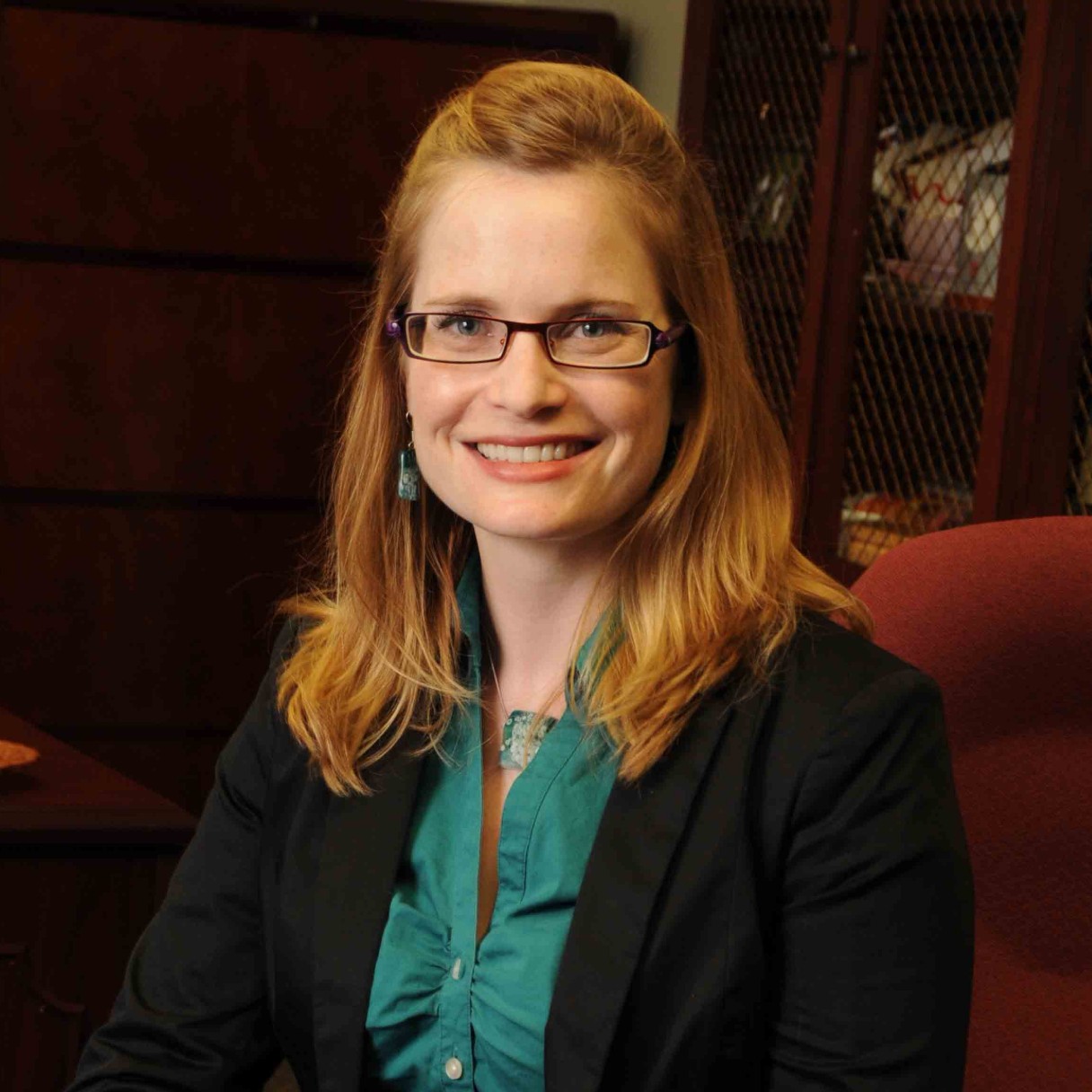 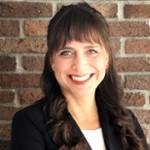 Written by: (L-R) Debra Bangasser, PhD, Chair of the E&D committee, and Susan Sangha, PhD, Co-Chair of the E&D Committee Written by: (L-R) Debra Bangasser, PhD, Chair of the E&D committee, and Susan Sangha, PhD, Co-Chair of the E&D Committee
IBNS strives to build, enhance, and maintain a diverse, inclusive, and safe environment for all scientists. Achieving this goal requires persistent and proactive actions delivered in a sustainable manner. The formation of the IBNS Ethics and Diversity (E&D) Committee is a testament to our commitment to this goal of creating a more inclusive environment and improving diverse representation across all levels of our Society. The heavy lifting in creating this committee was initiated by our current president Dr. Jared Young (2018-209) and formally created and spearheaded by the 2019-2020 Chair Dr. Amanda Kentner. IBNS has always brought together Behavioral Neuroscientists from across the globe, but with the formation of the E&D committee we reaffirmed IBNS’ commitment to equality by welcoming people from all walks of life, irrespective of socioeconomic background, ethnicity, sexual orientation, gender status, mental health status, able bodiedness, national origin, or political views.
The first initiative the committee achieved this past year to ensure a safe and inclusive environment was to institute a Code of Conduct, in addition to creating Reporting & Enforcement Procedures for the Code (and a whistle blower policy) and Response Procedures (and appeal procedures) that were adopted by the Society and can be found on the website.
Our next initiatives focus on increasing diversity, as we believe including scientists with varied backgrounds and sets of experiences is an asset that allows for the generation of new ideas and approaches to scientific problems. To assess the efficacy of any efforts, first was are collecting data on current diversity within the Society. Gender representation in awardees, speakers, and leadership has already been assessed, and these data will be presented at the virtual poster session and later included on the website. We also surveyed the diversity of the current membership and these data will be analyzed and posted on the website soon.
Another initiative has been to update the travel awardee application process to consider diversity more explicitly than in the past, including asking applicants to provide a Diversity and Inclusion Statement, where they describe ways in which they have made efforts or plan to make future efforts to promote diversity and inclusion in science. This new application process will be used for the 2021 travel awardees. This upcoming year we plan to focus on improving diversity in speakers by asking symposium proposals to include diversity information about their speaker lineup, so this diversity can be considered when selecting sessions.
We had planned our first Diversity and Inclusion luncheon for the 2020 Glasgow meeting that would have included a discussion on unconscious bias in science. We are sad that we were unable to hold the luncheon this year, but plan to include it at the 2021 Puerto Vallarta meeting. We are always looking for new strategies to improve diversity and inclusion, so we encourage IBNS members to reach out to E&D committee members if they have ideas on how to make IBNS as inclusive and diverse as possible.
Finally, we recognize the difficulties many of our members and trainees face with regards to racism in society. We are dedicated toward removing such stressors and will be posting work that can be done by all to tackle racism at your institution and society as a whole. While we promote inclusivity in all we do, as with our unconscious bias training, we know the need to also advocate for change and will continue to do so.
Back To Top
IBNS Online Poster Sessions
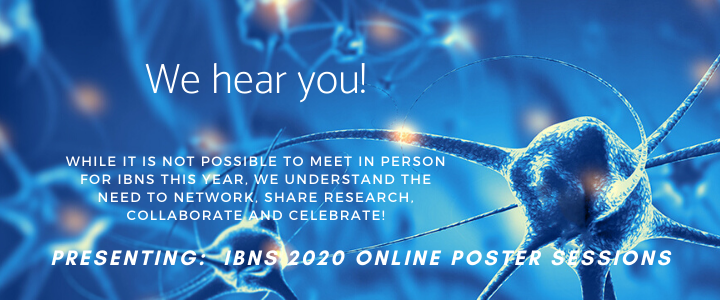
Deadline June 30, 2020
Update on the IBNS Council Meeting, June 12, 2020
The IBNS council meeting took place on Friday June 12, 2020 across the world’s timezones (6AM-11PM).
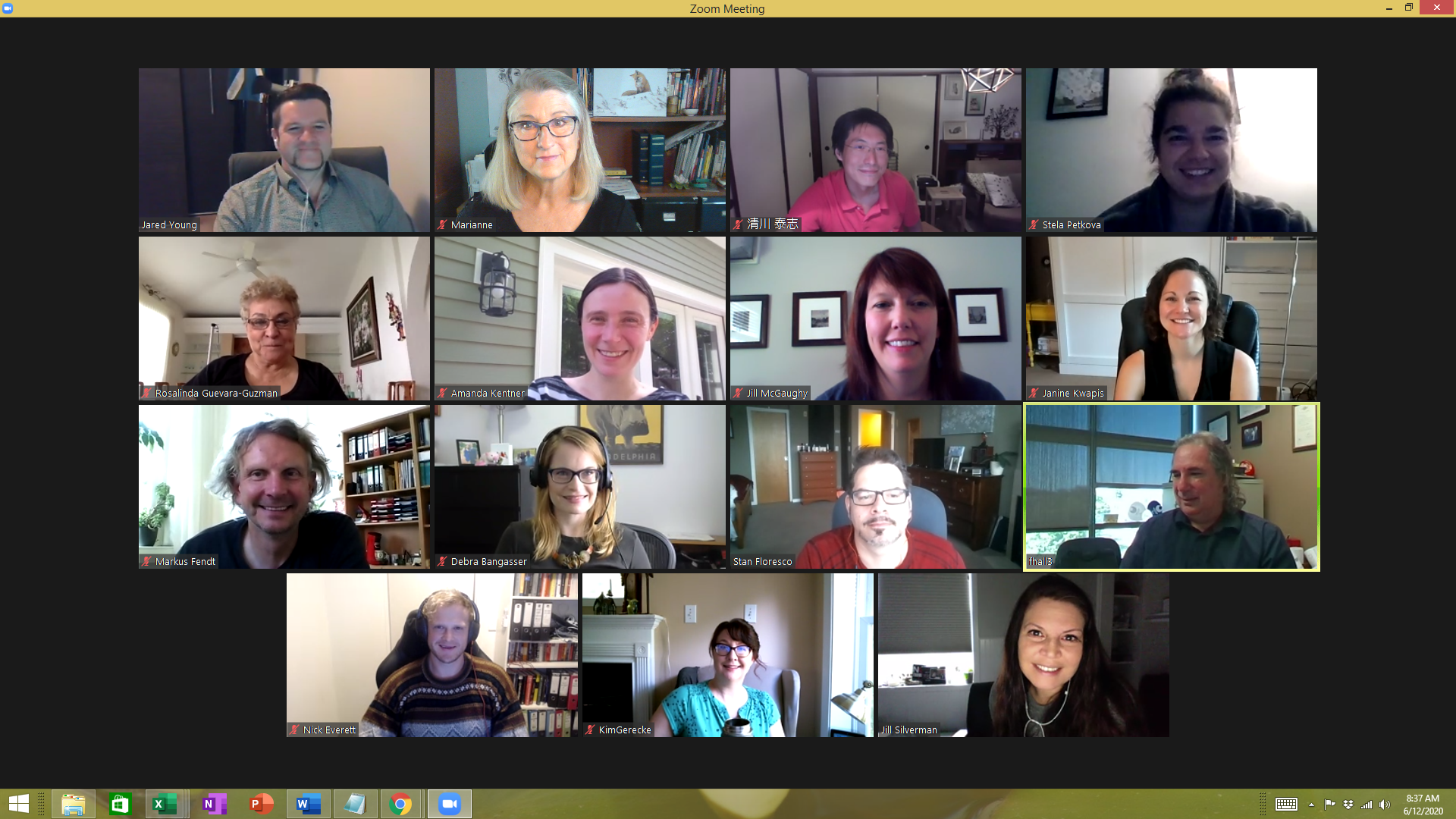
The major update for all was on what was being done as a result of canceling our 2020 meeting due to COVID-19. Despite the sorrow felt by all at the cancellation, there were several pieces of positive news to relate. We were pleased that 2020 received the highest number of symposia proposals ever seen for an IBNS meeting despite the practical concerns of FENS occurring in the same location 1 month later. Chairs of accepted symposia were given the option to present at the 2021 meeting and ~half accepted. We will also have a 2020 Keynote speaker fill the final 2021 slot, while all other Keynotes were happy to attend and present at our 2022 meeting. Other initiatives began in order to support our trainees, such as the mentor/mentee program headed by our Education & Training (E&T) Chair Dr. Sarah Baracz, while a virtual poster session will be held in August, led by Chair of the Adhoc Committee and Membership & Communication (M&C), Dr. Julianne Jett. In addition, all in attendance supported that 2020 travel awardees would receive free registration for the 2021 meeting, and whatever other support we can provide.Further conversations were had as to the nomenclature of our travel awardee categories, recognizing for example that Post Doc positions while perhaps only 1-5 years post graduate in the US, can be 10-15 years in other countries. Hence, while we cannot support our trainees in-person in 2020, we can support them virtually, and have pushed the envelope on supporting them hereafter.
In addition to supporting trainees, we at IBNS continue to support the diversity of our Society and STEM in general. In the past year, the Ethics and Diversity (E&D) Committee chaired by Dr. Amanda Kentner and co-chaired by Dr. Debra Bangasser established the Society’s commitment to Diversity. They researched the current status of diversity within the Society, at Meetings, and across leadership & presenters in general. Posters on this diversity were to be presented in Glasgow, but will be presented online, as well as posted onto our website. Establishing our current standing in diversity enables us to target where we may be lacking! We know more needs to be done, and so for 2020 a workshop on implicit bias was planned for IBNS 2020, and will now be moved to the 2021 meeting. In conducting this research, we noticed that the Council position Secretary, had only ever been held by women, and Treasurer held by men (until current Treasurer, Dr. Kim Gerecke). Given non-overlapping duties, it was proposed that the two positions could be combined moving forward, supported unanimously by Council and will now be voted upon by members. Furthermore, the E&D Committee worked with the E&T Committee to establish a rubric to standardize selection of travel awardees that will include consideration of diversity. This approach was recognized as needed across the Society, and so a vote was passed to coordinate the inclusion of a diversity statement to the Program Committee’s review process. In addition,we are working to identify childcare options for parents for the 2021 meeting at Puerto Vallarta. Hence, at every stage, we recognize the need for advocacy and inclusivity, whilee working to improve the Society for all.
More work accomplished by the E&D committee this year was the establishment of a code of conduct, and a response procedure for reporting of possible conduct violations. These procedures will appear at registration and will always be on the IBNS website, furthering our work to ensure IBNS is a safe space for all attendees. We greatly look forward to our 2021 Puerto Vallarta meeting, our 30th Anniversary, to be the largest, most inclusive, and safest to date!
We also got to hear the good news from the Nominations and Awards Committee, and while we would want to recognize them at the Society’s banquet, we recognize them here. For their support of the Society over the years, and their excellence in the field of behavioral neuroscience, we are proud to honor new IBNS Fellows: Drs. Karen Szumlinski, Stacy Rizzo, Jill McGaughy, and Andrew Holmes . This year we also have the opportunity to recognize a member of our E&D committee, Dr. Millie Rincón-Cortés as recipient of the Early Career Award given her excellent support of the Society and research conducted in the field. Finally, we are also proud to announce that the Outstanding Achievement Award recipient is former IBNS President, Dr. Mark Geyer. We congratulate all on their recognition from this Society, while thanking everyone on their continued work for the Society and science in general.
The meeting ended with a discussion of possible future venues for 2023, including potential meeting sites of making it to Puerto Rico, supporting New Orleans, or attending student-rich locations of Newport Beach or Toronto/Niagara Falls. It was a pleasant note to end the meeting with lots of support across many locations. Either way, despite the trauma of this pandemic, the Society remains in a strong position moving forward, especially in establishing meeting locations years in advance, work pushed by our outgoing President Dr. Scott Hall, for whom we are eternally thankful. See you all in Puerto Vallarta for our 30th Anniversary!
Back To Top
Recent Trends in Behavioral Neuroscience
Diversity in the gut microbiome may influence human personality traits
There is increasing evidence to suggest that changes in diversity of gut microbiota can influence both brain physiology and behavior. This includes stress, anxiety, depression and social behaviors as well as neurodegenerative and cerebrovascular diseases. The majority of research conducted on the microbiome-gut-brain axis has been conducted in animal models and most human studies have examined psychiatric conditions. This study links the composition and diversity of the gut microbiome in relation to human personality. Analysis of the gut microbiome revealed that people with larger social networks tend to have a more diverse gut microbiome and in contrast, anxiety and stress are linked to reduced diversity in the gut microbiome. The researchers suggest that it is the social interactions that shape the gut microbiome, and not the opposite. These results demonstrate that the microbiome-gut-brain axis may be relevant to the variation in sociability in the general population.
Johnson, K.V.-A. (2020). Gut microbiome composition and diversity are related to human personality traits. Hum. Microbiome J. 15, 100069.
Dietary trigylcerides modulate dopamine-dependent behaviors
Energy-dense food alters dopaminergic (DA) transmission in the mesocorticolimbic (MCL) system and can promote reward dysfunctions, compulsive feeding, and weight gain. However, the mechanisms underlying alterations in this circuitry by energy-dense foods are unknown. This study demonstrates that nutritional triglycerides (TGs) modulate dopamine-mediated behaviors via the TG-processing enzyme lipoprotein lipase (Lpl), which is expressed in the MCL of both humans and rodents. TGs can directly modify MCL circuit functions and thus influence reward reinforcement and food-seeking behaviors by gating DRD2-MSN activity and associated DA-encoded behaviors. It is unknown at this time precisely how dietary lipids gate DRD2-MSN activity, however the authors eloquently demonstrate behavioral, cellular, molecular and translational data tying dietary TG inputs to DRD2 neurons.
Berland, C., Montalban, E., Perrin, E., Di Miceli, M., Nakamura, Y., Martinat, M., Sullivan, M., Davis, X.S., Shenasa, M.A., and Martin, C. (2020). Circulating Triglycerides Gate Dopamine-Associated Behaviors through DRD2-Expressing Neurons. Cell Metab.
The epigenetic signature of a Toxoplasma parasite infection
The protozoan parasite Toxoplasma gondii is one of the world’s most common parasites, with approximately 25-80% of the global population being infected. Women, babies, and those with compromised immune systems are most at risk for serious infections. It is famously known to remove rodents’ innate fear of cats, demonstrating how it can influence behavior. Toxoplasma infection have been shown to cause long-term epigenetic changes; however, these effects have not been examined across generations. Transgenerational epigenetic inheritance is well known and well documented in men who have suffered from extreme trauma or drug abuse. This study investigates if a Toxoplasma infections in male mice could impact future generations. A link was established between Toxoplasma infections in male mice and behavioral changes in the F1 and F2 generations, despite the progeny not being infected with Toxoplasma. The presence of Toxoplasma also modifies the small RNA profiles within sperm and alters the neurodevelopmental path of F1 offspring. Pathogenic infections such as Toxoplasma can cause epigenetic changes in the male germline and change the offspring phenotype for at least two generations. Considering Toxoplasma gondii infects 25-80% of the global population, this has substantial implications for public health.
Tyebji, S., Hannan, A.J., and Tonkin, C.J. (2020). Pathogenic Infection in Male Mice Changes Sperm Small RNA Profiles and Transgenerationally Alters Offspring Behavior. Cell Rep. 31, 107573.
Back To Top
The Passing of Founding IBNS President Dr. Matthew J. Wayner
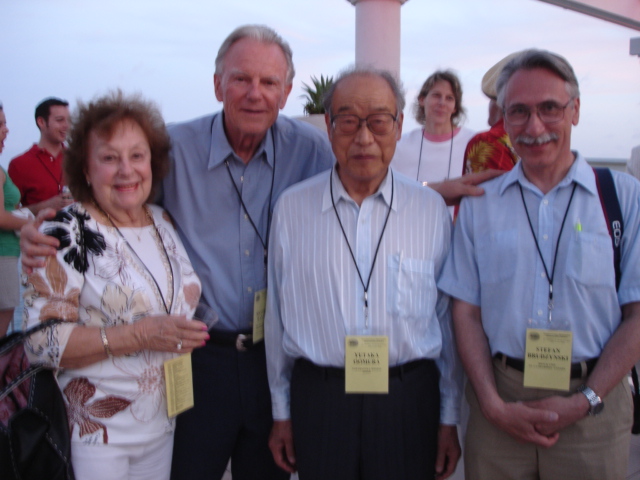 It is with sorrow that we note the passing of the Founding President of the International Society for Behavioral Neuroscience, Dr. Matthew J. Wayner. Dr. Wayner received an A.B. from Dartmouth College in 1949, an M.S. from Tufts College in 1950, and a Ph.D. from the University of Illinois in 1953. Matthew began his teaching career at Syracuse University in 1953. He became a faculty member at University of Texas at San Antonio in 1983, becoming the Director and Blumberg Professor of Life Sciences. In 1992, Dr. Wayner formed the International Behavioral Neuroscience Society becoming its founding President. Dr. Wayner received numerous awards during his career, from NSF Predoctoral Fellowship (1952-53), the Gold Pick Axe Award from Dartmouth College (1996), the Marjorie Myers Lifetime Achievement Award in Behavioral Neuroscience (1998), the UTSA President's Distinguished Achievement Award in Recognition of Research Excellence (2000), and the IBNS Award for Major Contributions to International Behavioral Neuroscience (2002). He will be missed. It is with sorrow that we note the passing of the Founding President of the International Society for Behavioral Neuroscience, Dr. Matthew J. Wayner. Dr. Wayner received an A.B. from Dartmouth College in 1949, an M.S. from Tufts College in 1950, and a Ph.D. from the University of Illinois in 1953. Matthew began his teaching career at Syracuse University in 1953. He became a faculty member at University of Texas at San Antonio in 1983, becoming the Director and Blumberg Professor of Life Sciences. In 1992, Dr. Wayner formed the International Behavioral Neuroscience Society becoming its founding President. Dr. Wayner received numerous awards during his career, from NSF Predoctoral Fellowship (1952-53), the Gold Pick Axe Award from Dartmouth College (1996), the Marjorie Myers Lifetime Achievement Award in Behavioral Neuroscience (1998), the UTSA President's Distinguished Achievement Award in Recognition of Research Excellence (2000), and the IBNS Award for Major Contributions to International Behavioral Neuroscience (2002). He will be missed.
For a fuller description of Dr. Wayner’s career, see https://obits.syracuse.com/obituaries/syracuse/obituary.aspx?n=matthew-wayner&pid=196334181&fhid=13173 and https://legacy.lib.utexas.edu/taro/utsa/00230/utsa-00230.html
Source for above and a fuller description of Dr. Wayner’s career can be obtained from https://obits.syracuse.com/obituaries/syracuse/obituary.aspx?n=matthew-wayner&pid=196334181&fhid=13173 and https://legacy.lib.utexas.edu/taro/utsa/00230/utsa-00230.html
Back To Top
Guest Editor Profile- Stacia I. Lewandowski
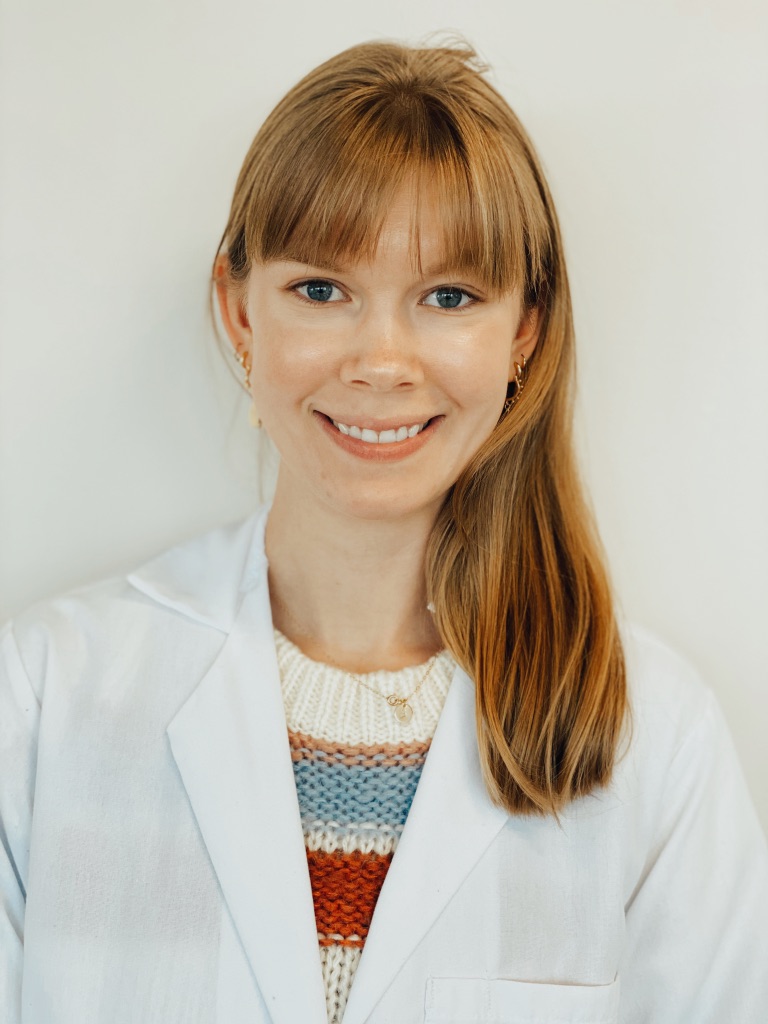 Stacia Lewandowski is a Ph.D. candidate in the department of Pharmacology & Physiology at Drexel University. She graduated from Temple University in May of 2015 with a Bachelor of Science in neuroscience. While an undergraduate, Stacia volunteered in Temple University’s Center for Substance Abuse Research (CSAR) under the guidance of Dr. Ellen Unterwald. She worked to characterize the function of the 5-HT2C receptor in the regulation of cocaine withdrawal-induced anxiety and also investigated the neurological basis for the relationship between post-traumatic stress disorder (PTSD) and substance abuse disorders (SUDs). These studies sparked her passion for behavioral pharmacology. During her time at Temple, she also volunteered in the Muschamp lab where she worked with then graduate students Steve Simmons and Taylor Gentile. There, she helped to investigate the Orexin (hypocretin) system on cocaine use disorders via administration of Suvorexant, a dual orexin receptor antagonist clinically used to treat insomnia. It was under the guidance of now Dr. Simmons and Dr. Gentile where she truly fostered her passion for didactic learning. Dr. Simmons and Dr. Gentile remain her dear friends, and Dr. Simmons still mentors Stacia to this day. Stacia Lewandowski is a Ph.D. candidate in the department of Pharmacology & Physiology at Drexel University. She graduated from Temple University in May of 2015 with a Bachelor of Science in neuroscience. While an undergraduate, Stacia volunteered in Temple University’s Center for Substance Abuse Research (CSAR) under the guidance of Dr. Ellen Unterwald. She worked to characterize the function of the 5-HT2C receptor in the regulation of cocaine withdrawal-induced anxiety and also investigated the neurological basis for the relationship between post-traumatic stress disorder (PTSD) and substance abuse disorders (SUDs). These studies sparked her passion for behavioral pharmacology. During her time at Temple, she also volunteered in the Muschamp lab where she worked with then graduate students Steve Simmons and Taylor Gentile. There, she helped to investigate the Orexin (hypocretin) system on cocaine use disorders via administration of Suvorexant, a dual orexin receptor antagonist clinically used to treat insomnia. It was under the guidance of now Dr. Simmons and Dr. Gentile where she truly fostered her passion for didactic learning. Dr. Simmons and Dr. Gentile remain her dear friends, and Dr. Simmons still mentors Stacia to this day.
Stacia is now in the laboratory of Dr. Ole V Mortensen at Drexel University where she studies the role of ERK 1/2 signaling in dopaminergic neurons of the ventral tegmental area and how this intracellular signaling contributes to cocaine-associated behaviors and dopamine signaling. She also works on a second project evaluating allosteric modulation of the dopamine transporter in animal models of substance abuse. She is interested in protein trafficking, drug seeking and reinstatement behaviors. In particular, she is interested in how other cell types such as astrocytes, may modulate the behaviors associated with drug use.
In her free time, Stacia spends time with her horse, Mondovi and her two cats, Martha and Maxine. She fosters kittens and their moms through the Philadelphia Animal Welfare Society (PAWS) and is a cat advocate. She is an avid reader, enjoying subscriptions to Scientific American and National Geographic. She is enthusiastic about spending time in cafes and coffee shops throughout Philadelphia. You can find her on Twitter at @SciStacia.
Back To Top
|